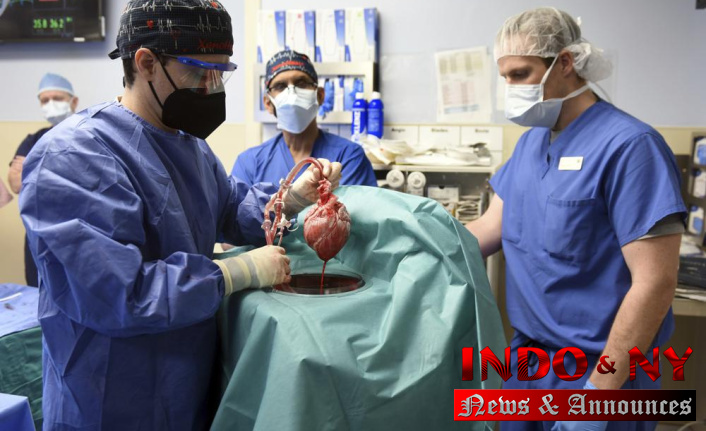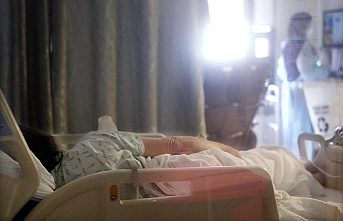Researchers are trying to find out what caused the death of the first man to have a heart transplant from an animal. However, they cannot say if the virus played any role in the man’s death.
David Bennett Sr., a 57-year old Maryland man, died March 2, two months after his groundbreaking experimental transplant. The University of Maryland doctors discovered viral DNA in the pig's heart on Thursday. The virus, porcine cytomegalovirus (or porcine cytomegalovirus), did not cause an active infection.
The risk of new infections in people is a major concern with animal-to-human transfusions.
Some viruses can be "latent", meaning they are not active and could cause disease. Dr. Bartley Griffith, who performed Bennett's transplant, said that it could have been a hitchhiker.
However, more advanced tests are being developed to "make sure we don't miss such kinds of viruses," said Dr. Muhammad Mohiuddin (scientific director of the university’s xenotransplant programme).
MIT Technology Review first reported the animal virus, citing Griffith's scientific presentation to the American Society of Transplantation last week.
Doctors have attempted to save lives for decades using animal organs. Bennett, who was ineligible to receive a human heart transplant and was already dying, had the last-ditch operation. He received a heart from an animal that was genetically modified to reduce the chance of his immune system rejecting the foreign organ.
Maryland's team stated that the donor pig was healthy and had passed the Food and Drug Administration's tests for infection. The animal was also raised in an environment designed to prevent the spread of infections. Revivicor, which provided the animal, declined comment.
Griffith stated that his patient was very sick and had been doing well after the transplant. However, he noticed that he felt worse one morning, similar to having an infection. To determine the root cause of Bennett's symptoms, doctors performed numerous tests and prescribed Bennett antibiotics, antiviral medication, and an immune-boosting treatment. The pig's heart began to swell and become clogged with fluid. It eventually stopped functioning.
Griffith asked Griffith: "What was the virus doing to cause the swelling in his heart?" "Honestly, we don't really know."
He said that the reaction didn't seem to be typical organ rejection and that further investigation is ongoing.
Doctors at other hospitals across the country are also experimenting with organs from animals in human donors and are eager to conduct formal studies on living patients. These plans are not affected by the pig virus.











